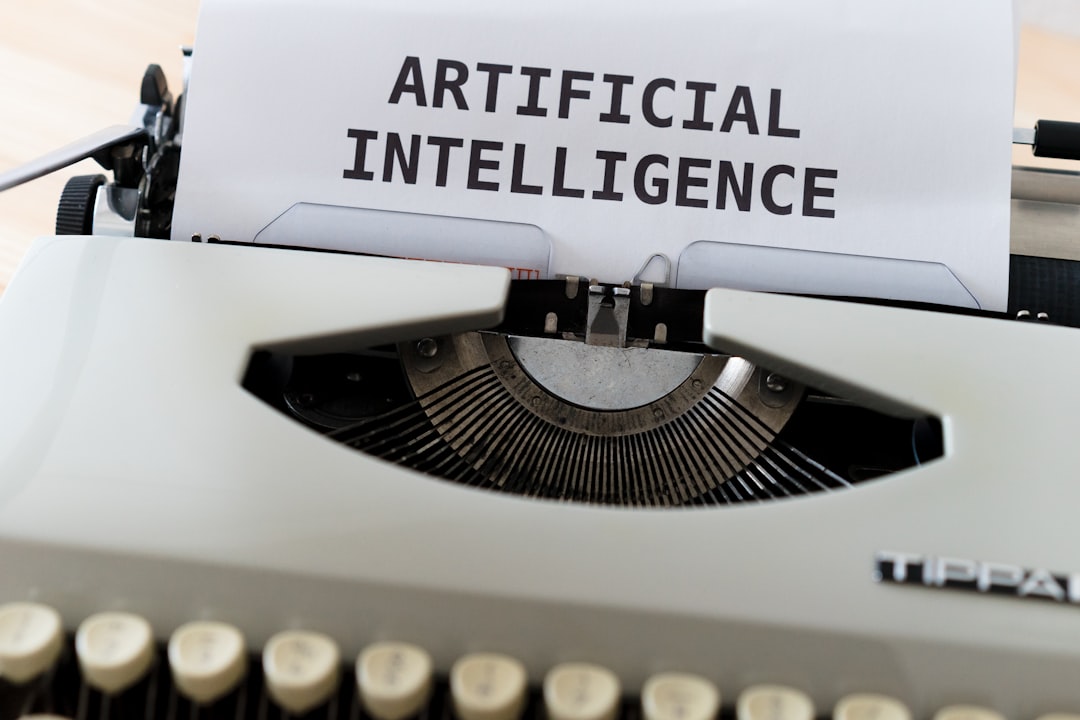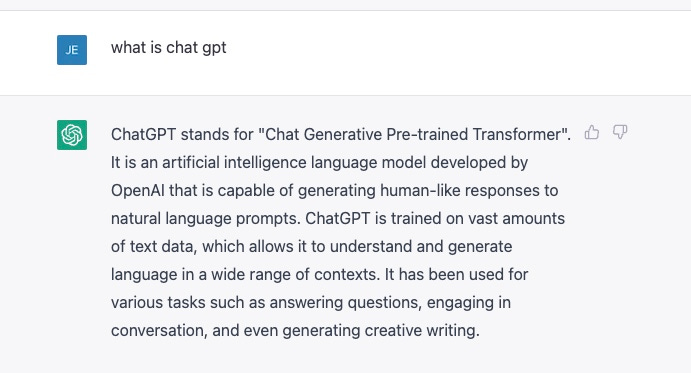Why I'm Not Afraid to Use AI in Writing
The Case for Affordances Instead of Just Fears

Two technological innovations transformed my experience of writing as a child: the typewriter and spellcheck. You see, I was a lousy speller with poor penmanship, and, even worse, I associated my intelligence and academic abilities with those two skills. When I was five, I recall an adult gasping to another adult, "She can't even write her own name!" as if I couldn’t hear her. I was embarrassed, and to be honest, it was true.
Reading and writing were difficult for me as a child, and as a result, I despised both and avoided them whenever possible. My mother was perplexed because my older brother had learned to read and write at a young age and enjoyed it. The methods that had worked to teach him to read were simply ineffective with me. (This is probably the point in our relationship, dear readers, at which I disclose that I was home-schooled. Publish Not Perish began about 8 months ago, so I believe the time has come for the big reveal.)
I fell in love with books because my mother read to me until I was able to read for myself, which didn't happen until I was about ten. Writing took longer to develop because, no matter what I tried, I couldn't spell or write anything legible by hand at a normal speed. I had to go very slowly and look everything up in a paperback dictionary or ask for help from teacher-mom.
Then, my mom introduced a wondrous piece of technology into my life: the typewriter. Yes, I am, I-learned-to-type-on-a-typewriter-years-old. I adapted to the keyboard quickly and was ecstatic that I could now write legibly. Mom would correct my spelling, and then I could use correction fluid to re-type my misspelled words neatly. Writing started becoming more fun when I suddenly was able to express myself with more clarity and with less labor.
In my early adolescence, my mother bought me a small handheld spelling device that was essentially an electronic dictionary that I could use much faster than the paperback. I finally felt like I could express myself without fear thanks to the spellchecker and, eventually, the computer, which was even more forgiving than the typewriter.
Years later, Microsoft Word introduced spellcheck, and once again, the world of writing opened to me in new ways. I didn’t have to spend so much time looking up words in the electronic dictionary because the program would automatically correct me when I spelled something wrong and even suggest how to spell the word I was looking for! I cannot tell you how much faster and more fluidly I began to write when I didn’t have to worry about checking my work so meticulously. The Word thesaurus function also expanded my vocabulary. I started to love writing now that I didn’t have to worry about the details that never seemed to stick in my head.
I remember hearing the cultural groan a few years ago that children were no longer learning to handwrite cursive in school, and what a tragedy that was. Had we lost a fundamentally human skill because we had become so dependent on electronic communication forms? Well-meaning adults may have critiqued my mother for allowing me to type when I hadn’t yet learned legible handwriting. They may well have argued that I would never learn to spell with the crutch of an electronic dictionary.
These same technologies, however, enabled me to write in ways I could never have imagined as a child. I am completely reliant on technology to write. In fact, if I have to write a birthday card by hand, my palms still sweat, and I don't feel like I can fully express myself. I sometimes type it out first and then write it on the card.
Artificial Intelligence Has Arrived
Fast forward to 2023, and the world is abuzz with what artificial intelligence as a technology will do to the craft of writing. AI can now write simple essays in seconds based on a prompt or series of prompts. It can condense complex intellectual works into a few easily digestible sentences in the blink of an eye. At the very least, AI can serve as a copyeditor, correcting awkward phrasing and even suggesting new ideas. Every day, new free and paid apps with this technology emerge across a wide range of genres.

Bill Gates has declared AI “as revolutionary as mobile phones and the internet.” He writes,
The development of AI is as fundamental as the creation of the microprocessor, the personal computer, the Internet, and the mobile phone. It will change the way people work, learn, travel, get health care, and communicate with each other. Entire industries will reorient around it. Businesses will distinguish themselves by how well they use it.
These developments, of course, stoke our collective panic—especially as educators and scholars. Will students cheat on essays, depriving themselves of the critical skill of crafting coherent thoughts in words entirely written by them? Will overworked and underpaid academics plagiarize the internet's collective human knowledge and credit themselves instead? Will formulaic algorithms make writing boring, robotic, and lifeless?
While these are all ethical and pragmatic concerns that we will all have to address as AI becomes more prevalent, I am genuinely compelled by the prospects that AI offers. There is growing excitement about what AI can do, for example, for students with learning disabilities. Given my personal experience with writing and technology, I am more intrigued by what AI can give writers than by ethical quandaries or a fear of loss. AI, like the typewriter and spellcheck, may help me become a better, faster writer. I could also help a generation of students who have trouble learning find ways to shine.
Some Key Assumptions for My Use of AI
I've started dabbling in AI tools in my own writing and research over the last year, and there are a few key assumptions I make when I do so.
First and foremost, I see these tools as serving a support function, similar to hiring a copyeditor or proofreader or having a teaching or research assistant. I've hired human proofreaders and copyeditors to edit my work, and I use my AI copyediting program in a similar manner, albeit much more frequently. I've used research assistants to find literature and write brief summaries so that I could quickly decide whether or not to read something for a literature review. It turns out that AI can perform the same tasks much more quickly. Because I no longer have the start-up funds to pay for humans to do these types of tasks, AI has become a much more cost-effective way for me to find the help I need.
In essence, the questions below serve as my litmus test for determining whether or not I'm using AI in a way that feels ethical to me. I ask myself, “is it customary in my profession for people to pay or trade for this type of research and writing assistance?” Another is, “If this were a human helping me, would they need to be listed as a co-author because they provided substantial ideas and writing, or are they thanked in the acknowledgements because they gave feedback on or otherwise supported the project?” For example, I have a colleague who frequently reads my work and gives me feedback. We have a reciprocal relationship where we trade this labor. We never list each other as co-authors for this type of exchange, but we do thank each other in the acknowledgements.
Second, I am ultimately responsible for the quality and accuracy of the information provided by AI, just as I am for the people I hire to assist me with my work. I have to check the work of all my assistants—human and machine—because, most of the time, they are less familiar with the content than I am, and it’s easier for me to judge the material than them.
For example, I recently put ChatGPT to the test by asking it to summarize my book. It completely misunderstood the book's main argument and listed the incorrect author. When I asked Chat GPT to summarize Foucault's Discipline and Punish, the tool provided a concise, clear, and accurate summary. So, while ChatGPT can point me in the right direction, just like Wikipedia, I'll need to double-check the information using traditional methods. To be clear, I would not paste ChatGPT’s description of Foucault into my research project, but rather ensure that I was on the right track before returning to the original text.
Ghostwriting is not commonly accepted in my profession, so having an AI program completely write a manuscript or one of my Publish Not Perish posts would be against my ethics. (Additionally, the technology isn't sophisticated enough to manage complex ideas, arguments, and examples, so I don't believe this could ever be done successfully in credible journals anyway.) Other industries are actively using AI to effectively ghostwrite entire online articles, but I doubt their content was ever that sophisticated, smart, or creative to begin with, so the integration has been more seamless, and frankly, acceptable, in those professions.
In an upcoming post, I'll walk you through some of the AI tools I've been using or experimenting with, so you can see why I'm so intrigued by this technology. I'm not trying to persuade you that you shouldn't be concerned about students using this technology to submit entire essays or that we don't need to address the ethics of AI writing tools in general as a society. For example, the Guardian recently published an article about how they plan to grapple with the rise of ChatGPT in journalism, as well as some of the issues they are already facing.
My point here is that these innovations can be liberating for some of us, and I think there are reasons to be optimistic about the prospects even as we proceed with our eyes wide open. After all, technology enabled young Jenn to become a writer in the first place.
Acknowledgements
Thank you to my MacBook, my wireless keyboard, spellcheck, the Quillbot AI writing tool, the text-to-speech proofreading function, Substack, artificial light, my electronic standing desk, Spotify, do-not-disturb, coffee, and all the other technologies that assisted me in writing this post.
Thanks also to Mom, who has always been and will always be my favorite editor.
We’d Like to Hear from You!
I realize that some of you may object to the optimism in this post, so please feel free to challenge me here. My thinking about these technologies is rapidly evolving, so I’m happy to hear both how you are using AI in your work and any ethical quandaries or horror stories you’ve encountered. Leave a comment!




I can relate to your childhood. I have had similar experiences with learning how to read and write. My mom also has been the biggest support to me in helping me learn and navigate my challenges. Thank you for sharing this!
I needed this reassurance. I love how you outline the thought process on what is ethical and unethical. I enter my writing into an Ai just to see if it's coming through coherently. Occasionally I'll get a question from it asking something like, "how did x end up standing by the lake?" I may choose to answer this question or not, but it helps prompt me to consider what someone else might want to know.
I'd never want to use it to generate content, but it's nice to have a "pre-editor" before encountering the terror of handing it over to another human.